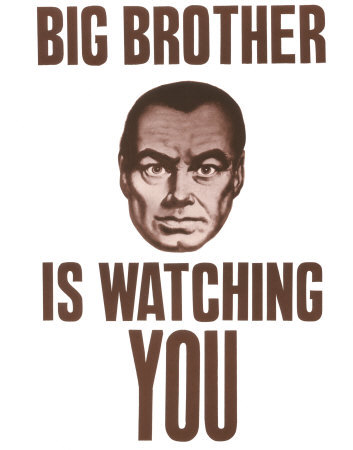Let Them Eat Social Networking
 In The New Republic, Evgeny Morozov has a characteristically sharp and provocative review of Jeff Jarvis’ new book cheering the death of privacy, Public Parts: How Sharing in the Digital Age Improves the Way We Work and Live:
In The New Republic, Evgeny Morozov has a characteristically sharp and provocative review of Jeff Jarvis’ new book cheering the death of privacy, Public Parts: How Sharing in the Digital Age Improves the Way We Work and Live:
With a little Habermas, a little Arendt, and a little media history, Jarvis argues that “if we become too obsessed with privacy, we could lose opportunities to make connections in this age of links.” Privacy, he argues, has social costs: just think of patients guarding their health information instead of sharing it with scientists, who might use it to find new cures. For Jarvis, privacy is the preserve of the selfish; keep too much to yourself, and the “Privacy Police” may pay you a visit.
Why are we so obsessed with privacy? Jarvis blames rapacious privacy advocates—“there is money to be made in privacy”—who are paid to mislead the “netizens,” that amorphous elite of cosmopolitan Internet users whom Jarvis regularly volunteers to represent in Davos. On Jarvis’s scale of evil, privacy advocates fall between Qaddafi’s African mercenaries and greedy investment bankers. All they do is “howl, cry foul, sharpen arrows, get angry, get rankled, are incredulous, are concerned, watch, and fret.” Reading Jarvis, you would think that Privacy International (full-time staff: three) is a terrifying behemoth next to Google (lobbying expenses in 2010: $5.2 million).
I haven’t had a chance to read Jarvis’ book yet, so I can’t comment specifically on it. But I was struck while reading Morozov’s review by an argument that he didn’t make, but probably should have.
Advocates of “radical transparency” like to make it sound like it’s an egalitarian development — a leveller — because if privacy is dead, we are all equally exposed. In other words, suddenly it’s not just celebrities who are being chased by paparazzi, but everybody; because in the radically transparent world, we have all transformed ourselves into paparazzi, reporting breathlessly on each other to the world. In this reading, a post-privacy world is a world in which everybody is equally exposed.
But this is, of course, nonsense. When you step out of the world of theory and look at the world as it is, it quickly becomes clear that while the Internet has degraded privacy, it has done so far from equally. Thanks (if that is the appropriate word) to Facebook, I know a lot more about my friends’ private lives today than I did a decade ago; but I know about as much about Barack Obama’s private life, or Lloyd Blankfein’s, as I did about the great politicians and financiers back then. Maybe even less, since people at that level actively engage expensive teams of experts to use social media tools to “manage their personal brand” — make them appear as they want to be seen, rather than as how they really are. Maybe my friends would do the same, if they could afford to. But the point is, they can’t.
And that brings me to the dog that didn’t bark in Morozov’s review. The truth of Google is that while we live in a time of greater exposure, we are not all exposed equally. We are sorted instead into two classes: those who can afford privacy, and those who cannot. Those who can engage PR firms and lawyers to ensure that anyone who does spy on them does so at great personal risk. Those who can’t must learn to live without privacy — indeed, they must accept their own personal information being used to enrich others. (To sweeten that pill, the others give the proles “free” toys to play with; left unsaid is that each toy has its own set of eyes built in, to make the conversion of your privacy to their profit even more efficient.)
That is what was so subversive about Wikileaks, and why the establishment reacted so forcefully against it — it applied the “radical transparency” ethos to the class of people who were supposed to be exempt from it. You need to learn to get over privacy — and if you can’t, Google will roll out Jeff Jarvis, or someone like him, to explain to you that you’re being a stick in the mud — but cabinet officers and CEOs didn’t think they needed to. And when someone had the nerve to challenge that assumption, all the power of the powers that be came down on them like a ton of bricks.
Morozov reports that Jarvis’ book doesn’t dwell much on Wikileaks. That doesn’t surprise me, because for all the noise the “radical transparency” types like to make about the social value of eroding privacy, the only privacy reductions they’re generally interested in are those that can be monetized. Google and Facebook are interesting to them because they have built business empires by commoditizing your privacy; all Wikileaks did was expose critical information about the foreign policy of the world’s dominant hegemonic power. Who cares about that? That didn’t make any VCs’ pockets jingle.
This is why “radical transparency” arguments get my hackles up — they always seem to be made by people who are arguing for less privacy for others, and frequently they are doing so on behalf of those who profit from that reduction in privacy. If you think living without privacy is a great idea, then do me a favor: you go first.
